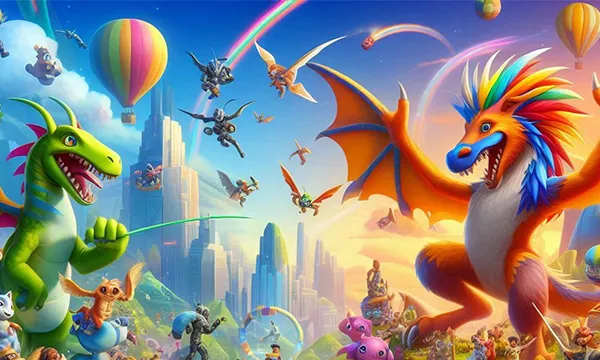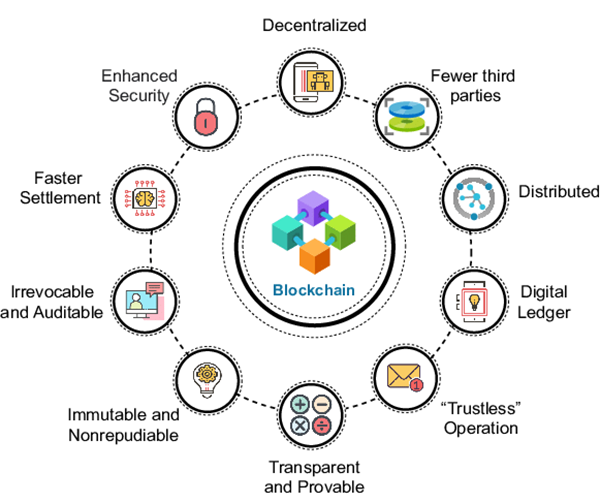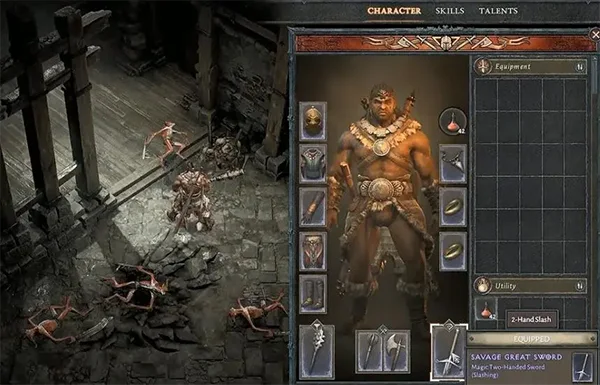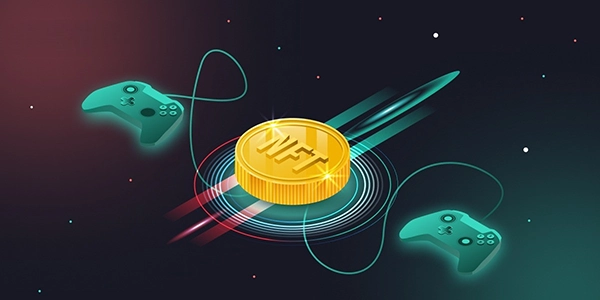
KEY TAKEAWAYS
- NFT games leverage blockchain to its full potential.
- NFTs are a digitalized asset that has ownership and can be traded or sold.
- Diablo 4’s looting system contributed greatly to its success.
- When users feel valued, they automatically become loyal to a game or software.
- Fairness and transparency enhance trust.
Gaming might just be one of the most advanced fields of our generation. The market valuation speaks for itself, being valued at $221.24 billion in 2024 and expected to reach 424.23 billion by 2032, it knows no limit and continues to evolve.
One of its parts, NFT gaming, has experienced significant growth in the past few years, and NFT game development companies based in India are coming up with new ways to further enhance the user experience. But how and what are they bringing to the table?
In this article, I’ll mention how India is revolutionizing NFT games with lessons taken from Diablo 4. It’s going to be quite interesting, so make sure to read it till the end.
Before getting to know about NFT or Non-Fungible Tokens games, you should start by learning what it is excluding from the game. It is a digital asset, typically registered on blockchain, and has an owner. It can be any art or collectible.
These can be traded or sold, and the ownership can be transferred by the original holder. But it can’t be copied, subdivided, or substituted. Notably, the most expensive NFT to be ever sold was “The Merge” by Pak, which was sold for $91.8 million.
Now, NFT games and those that have integrated Non-Fungible Tokens as the core part or make it work as in-game currency. In simple terms, blockchain is merged with a game that allows players to transfer their earnings to other games with cryptocurrency. They can even transfer it to another person and earn real money in return for the sold item.
Blockchain plays a major role here, and below, you can see several benefits that are being offered by it.

India has seen a significant rise in NFT games over the year. This happened because youngsters are quite interested in these trends and with good internet connection they eventually start playing such fascinating games.
Another reason is the rise of cryptocurrency and how it has been incorporated into gaming. They’ve become easily accessible, and the NFT gaming market is continuing to grow in India, and game developers in India have been able to gather both local and international players with their innovative capabilities.
Well-known blockchain companies are trying to get their hands on this growing market as they can make significant amount of profit and are even investing in creating better gaming experiences and solutions. It is worth mentioning that developers are taking it seriously and are focused on quality, as they want the users to have fun.

Diablo 4, launched in 2023 by Blizzard Entertainment, is one of the most renowned online action role-playing games, and thanks to its specialized loot system, players keep finding themselves invested and engaged the whole time.
Developers paid special attention to design as it gives off the sense of progression and achievement, which helps in retaining players. The loot system is crafted in a way that it’s fair to everyone; players feel valued, and their efforts get compensated.
Any type of unfair advantage is not tolerated, which helps create a critical balance with the interest of users and potential burnouts. Keeping everything in mind, NFT game developers can come up with a system that eliminates common issues like the loot box controversies or pay-to-win structures.
Here are some of the key parts of Diablo 4’s loot system. This includes:
By applying Diablo 4’s principal to an NFT game, developers can create an ultimate system with great features and benefits. Some of those are:
If the NFT game developers of India start to take Diablo 4’s loot system or its dynamics into consideration, they can create an engaging setup that won’t let players get bored and leave the game. Add randomness to make users feel excited and motivated.
A fair loot system would be created where everyone will be equally valuable, and players will trust the game. Not just that, a friendly ad positive gaming community would be formed, and it would be loyal towards the game for a very, long time.

If players can feel that they are in charge of what they get, it will push them further to improve how they play. Skill-based tasks should be promoted, or new challenges can be presented to see how users overcome them.
They’ll be able to shape their own experience and would be more careful with decision-making because they would be aware it could impact the loot rewards negatively, or they might just only get common items. This approach also leaves them wanting more and keeps them returning to the game.
Trust can only be maintained with fairness and transparency; that’s one of the reasons why Diablo 4 was such a success. Blockchain makes it easy for developers to come up with solutions where no misconduct can happen, and all the transactions would be recorded in a public ledger, which can prevent manipulation.
Developers can create a trustworthy and enjoyable game by giving the players access to reliable and accurate information. Individuals would be confident and feel secure with their experiences.
Top blockchain development companies of India are brining new revolution with their technical expertise and innovative ideas. They are capable of developing cutting-edge NFT games that can integrate all the principles mentioned above and compete on international level.
They have recruited several experienced game developers who are contributing to building a game that is rewarding for players. Their skills and knowledge are top-notch, which helps companies grow further and pose as the leaders of the growing NFT gaming market.

Creating a robust NFT game ecosystem that aligns with developers, investors, and players is necessary. A well-balanced platform needs to be established that streamlines trading and selling NFTs without compromising security.
Developers need to pay close attention to building something that promotes player engagement and interaction to grow the community. This supportive environment will help sustain users and create the ultimate ecosystem.
DID YOU KNOW?In 2024, the global NFT gaming market was valued at $4.8 billion and is projected to reach $44.1 billion by 2034!
The Indian NFT gaming market is evolving and are brining new things that will assist with getting global recognition. It’s not easy and will take some time, but the right steps are being taken, and the progress is undeniable.
In the upcoming years, this market would be led by developing companies based in India, and other firms from around the world will step forward to collaborate. They just have to focus on player enjoyment, communication, security, and reward-based structures.
While there are no laws directly related to NFTs, India does have policies and laws related to cryptocurrencies, which bans mining, selling, and holding of digitalized currency.
The future of NFT art is as bright as it can be because leading companies are trying new things and building an ecosystem that fulfills everyone’s requirements.
In India, one NFT can be purchased for 0.55 INR or 0.0064 USD. That means for 5 NFTs, you’ll only be paying 2.75 INR or 0.032 USD.
